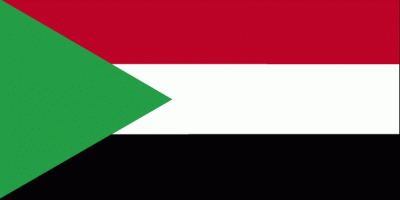Outgoing President Obama Announced Partial Suspension of Economic Sanctions on Sudan

The outgoing U.S. President Barak Obama will freeze some of the economic and trade sanctions on Sudan, different news agencies reported on Thursday.
The suspension which was contested by some members of Obama administration, is mainly based on “the findings of Sudan’s security cooperation with Washington”. “It was mainly backed by the State Department,” an American source told Sudan Tribune.
The media cited Sudan’s collaboration in the fight against terrorism, including limiting the movements of Islamic State fighters.
Regarding the file of peace in Darfur, the partial freezing takes into account the end of military bombardments on civilians areas in the western Sudan, improvement of humanitarian access to civilians in the conflict affected areas.
Also, the decision takes into account Sudanese government efforts to achieve peace in South Sudan and its neutrality in the conflict that started in December 2013. American officials say Khartoum refused to allow rebels to operate from its territory and also stemmed the flow of weapons into the troubled country, despite Juba support to Sudanese rebel groups.
Citing officials at the While House, The Associated Press says Washington will “announce a five-track engagement process with the Sudan, including the easing of sanctions, responding to positive actions by the government. They say these include improved Sudanese counterterrorism efforts”
However, the suspended sanctions could be reinstated if the Sudanese government backtracks on its progress.
U.S. Special Envoy for Sudan and South Sudan, Donald Booth, kept working tirelessly on the file of peace in Sudan. Several sources said President Obama wished to close the file of Sudan sanction before to leave the White House like Cuba and Burma.
Congressmen and rights activists say still conditions in Sudan are far from their expectations and have demanded to maintain to maintain the sanctions on the regime of President Omer al-Bashir.
The State Department and the Department of Treasury since last October, held three meetings in Washington, London and Dubai to encourage commercial banks to avoid de-risking humanitarian and non-governmental remittances stressing the trade and financial embargo target only the Sudanese government.
Despite the strong impact of the sanctions on the Sudanese government, officials at the State Department points to the negative impact of the measure on the ordinary Sudanese. It also feeds anti-Americanism in the region and Islamic world they say.
Sudan has been under American economic and trade sanctions since 1997 for its alleged connection to terror networks and remains on the U.S. list of state sponsors of terror. The first batch of sanctions restrict U.S. trade and investment with Sudan and block government’s assets of the Sudanese government.
Additional sanctions in relations with the conflict in Darfur region were introduced by two Executive Orders in 2006.

